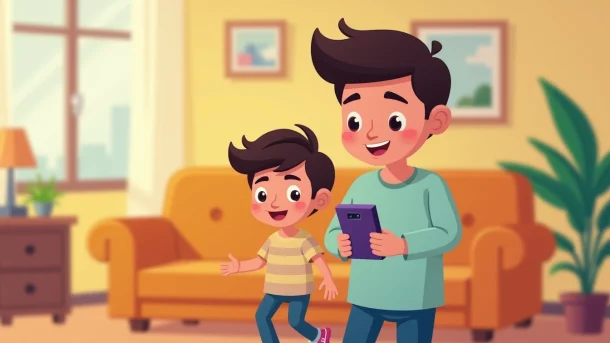Social media has become an integral part of modern life, especially for children and teenagers who often use these platforms to communicate with friends, share photos, and explore their interests. However, the constant exposure to social media can have significant negative impacts on young minds. This article will delve into the various ways social media affects kids and discuss how parents can implement effective control measures to safeguard their children from its potential harm.
The Impact of Social Media on Children’s Mental Health
Social media exposure has been linked to a decline in mental health among children and adolescents. Prolonged use of these platforms can lead to increased feelings of anxiety, depression, and low self-esteem. Comparing their lives to the often idealized versions presented by others online can create unrealistic expectations and foster feelings of inadequacy.
Additionally, the constant pressure to maintain a perfect online image and engage with others can cause children to experience high levels of stress and burnout. Cyberbullying, which is prevalent on social media, can further exacerbate mental health issues, making children feel isolated, humiliated, and worthless. To counter these effects, parents should encourage their children to take regular breaks from social media, focus on real-life interactions, and seek professional help if they notice signs of distress.

Social Media and Children’s Sleep Patterns
The blue light emitted by electronic devices and the constant stimulation provided by social media can interfere with children’s sleep patterns. Late-night scrolling through feeds and engaging in conversations with peers disrupts the body’s natural sleep-wake cycle, leading to decreased sleep quality and quantity.
Chronic sleep deprivation in children has been linked to a range of issues such as impaired cognitive function, weakened immune system, and increased risk of obesity. To mitigate these effects, parents should implement strict screen time limits, especially before bedtime, and create a relaxing bedtime routine that excludes electronic devices. Establishing a consistent sleep schedule can also help regulate children’s internal clocks.
Social Media and Children’s Physical Health
The sedentary nature of social media use can contribute to children’s physical health problems. Prolonged sitting and lack of physical activity can lead to weight gain, poor posture, and eye strain. Moreover, the temptation of unhealthy eating habits often portrayed on these platforms can negatively impact children’s dietary choices.
To address these issues, parents should encourage their children to engage in regular physical activities and maintain a balanced diet. Limiting screen time during meals can also help promote mindful eating habits. Additionally, investing in ergonomic furniture and ensuring proper lighting conditions can alleviate the physical discomfort associated with extended social media use.
Social Media and Children’s Online Safety
Social media platforms expose children to numerous online dangers, such as predators, scammers, and inappropriate content. Children may be lured into sharing personal information or engaging in risky behaviors by strangers posing as friends online. Exposure to graphic violence, pornography, and extreme ideologies can also have a lasting impact on their psychological development.
To protect their children from these threats, parents should implement strict privacy settings, monitor their online activities, and educate them about the importance of digital citizenship. Encouraging open communication about online experiences and teaching children to recognize and avoid suspicious contacts are essential steps in keeping them safe.
While social media offers numerous benefits for children, it is crucial for parents to be aware of its potential negative impacts on their physical and mental health, as well as their online safety. By implementing effective control measures such as setting screen time limits, promoting healthy habits, monitoring online activities, and fostering open communication, parents can create a safe environment that allows children to enjoy the advantages of social media while minimizing its harmful effects.
Safeguarding our children’s well-being in an increasingly digital world is a shared responsibility. By raising awareness about these issues and working together, we can ensure that young minds develop into resilient individuals capable of navigating both the real and virtual worlds with confidence and wisdom.





